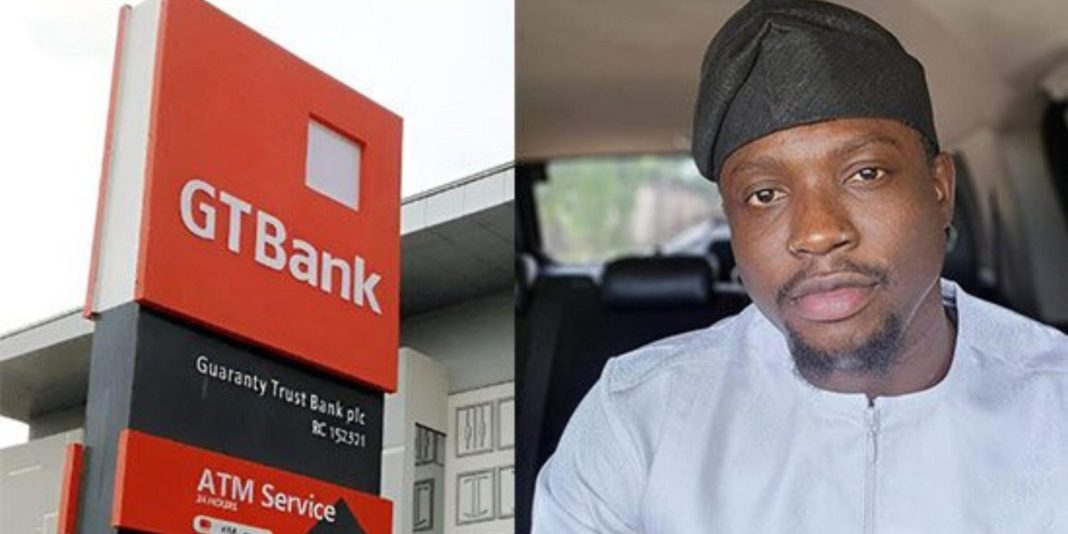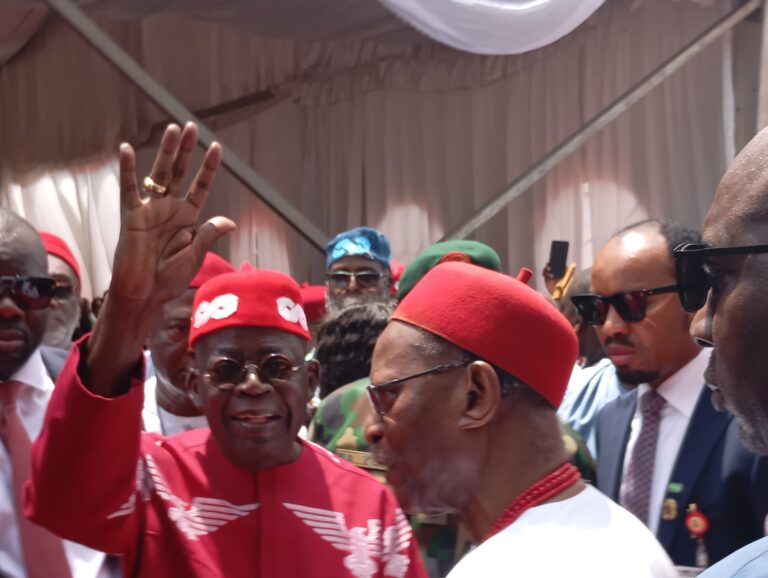On May 2, 2025, social media in Nigeria was set ablaze following the arrest of popular content creator and activist Martins Vincent Otse, widely known as VeryDarkMan (VDM). His arrest by operatives of the Economic and Financial Crimes Commission (EFCC) came shortly after he visited a Guaranty Trust Bank (GTBank) branch in Garki, Abuja, to address complaints about unauthorized deductions from his mother’s account.
The incident, captured on CCTV and circulated online, showed VDM seemingly trapped at the bank’s exit before EFCC operatives detained him. The viral footage triggered outrage, with many alleging a coordinated effort to suppress a vocal critic of institutional misconduct. The initial silence from both GTBank and the EFCC only intensified speculation about collusion and raised concerns about potential overreach by state and corporate entities.
VDM’s lawyer, Deji Adeyanju, took to social media on May 5, claiming the EFCC had failed to provide a formal petition or justification for the arrest. “EFCC said there is no petition against him after our repeated demand,” he wrote, casting doubt on the legality and motive behind the action.
On May 6, the EFCC responded publicly, confirming VDM’s detention and citing multiple petitions related to alleged financial misconduct. The Commission claimed he had ignored prior invitations, which prompted his arrest. It assured the public that due process was followed and that VDM would be released once his bail conditions were met.
Despite the statement, public sentiment remained largely critical. Many questioned the EFCC’s focus, especially when politically connected individuals facing serious allegations remain free. GTBank’s role came under particular scrutiny, with questions such as: “Why was VDM trapped in the bank’s exit?” and “Why hasn’t GTBank issued a statement?” gaining traction online. Accusations ranged from complicity to targeted retaliation for VDM’s outspoken criticism of the bank.
The incident sparked nationwide debate on institutional abuse, freedom of expression, and corporate responsibility. Protests erupted outside GTBank branches, with demonstrators calling for VDM’s release. A growing number of customers closed their accounts in protest, amplifying calls to boycott the bank.
Hashtags like #FreeVDM, #GTBankvsVDM, and #BoycottGTBank trended widely. Social listening data revealed a 320% surge in GTBank mentions on X (formerly Twitter), with 72% of the feedback being negative. Instagram also saw a spike in critical comments under GTBank’s posts, and meme culture further fueled the backlash.
Commentary on the incident varied. Wisdom Etim, an accountant at Fairmoney, remarked on LinkedIn that the situation could have been a branding opportunity had GTBank managed it better. “He might have become an accidental brand ambassador,” Etim wrote, but instead, “they failed.” He also suggested that EFCC couldn’t have acted without at least some consent from bank management.
Samson Oni, a banking executive, pointed out the reputational risks involved, including erosion of customer trust and operational setbacks. Meanwhile, Ibrahim Sadan Landan-Banki likened GTBank’s role to being a “conduit,” drawing parallels to the controversial capture of Nnamdi Kanu.
However, not all opinions blamed the bank. Chartered accountant Wasiu Bisiriyu defended GTBank, referencing CCTV footage showing VDM leaving the banking hall and being arrested outside. He questioned VDM’s version of events and argued that arrests can lawfully occur anywhere, including bank premises.
As GTBank faced mounting public pressure, its competitors saw a boost. Access Bank reported a 15% increase in customer engagement, and Zenith Bank noted a 22% rise—largely due to favorable comparisons and positive sentiment.
VDM remains in EFCC custody pending his fulfillment of bail requirements. The incident highlights the power of digital advocacy and the increasing demand for transparency and accountability from both public institutions and private corporations. As scrutiny intensifies, both the EFCC and GTBank are under pressure to clarify their roles and restore public trust.





